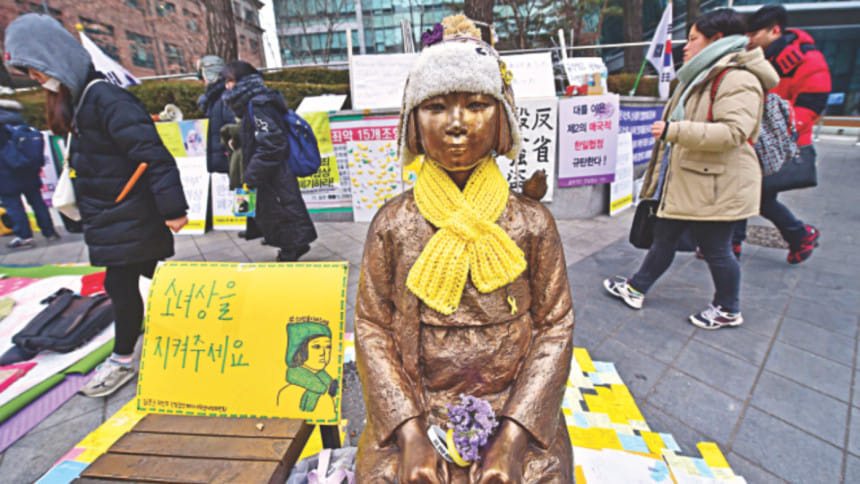Korea-Japan deal stumbles over a statue

A landmark deal between South Korea and Japan to end a decades-old feud over wartime sex slaves is struggling to overcome a diminutive but daunting obstacle in the form of the small statue of a teenage girl.
Last week, Japan offered an apology and a one-billion yen ($8.3 million) payment to the 46 surviving Korean comfort women under an agreement which both countries described as "final and irreversible".
But the deal has triggered confusion over the fate of the comfort woman statue, which has now become a focus for South Korean activists who accuse the government of selling out to Tokyo.
Japan insists the agreement included a clear undertaking from South Korea to remove the statue, with Japanese Foreign Minister Fumio Kishida stating Monday that he understood it would be "relocated appropriately".
But Seoul says it only promised to look into the possibility of moving the bronze and called in a senior Japanese embassy official to protest what it called Kishida's provocative comments.
South Korea's foreign ministry has also stressed that because the statue was put up by civic groups, it has no right to order its removal.
And the group that spearheaded the campaign to create and erect the bronze is adamant that it isn't going anywhere.
The statue cannot be "a condition or means of any agreement," the Korean Council for the Women Drafted for Military Sexual Slavery by Japan said in a statement on its website.
"I am here to defend the peace monument," 22-year-old Jung Woo-Ryung defiantly declared, as she stood guard Tuesday beside the seated bronze figure that was erected on the pavement opposite the Japanese embassy in Seoul in 2011.
Depicting a young, barefoot woman, dressed in a traditional Korean hanbok dress and with her fists clasped tight in her lap, the statue is both a symbol of the suffering endured by so-called "comfort women" forced to work in Japanese military brothels during World War II, and of their struggle to extract a formal apology and compensation from Tokyo.
"And the Korean government cannot mention anything about the removal or moving of the monument," it added.

 For all latest news, follow The Daily Star's Google News channel.
For all latest news, follow The Daily Star's Google News channel. 



Comments